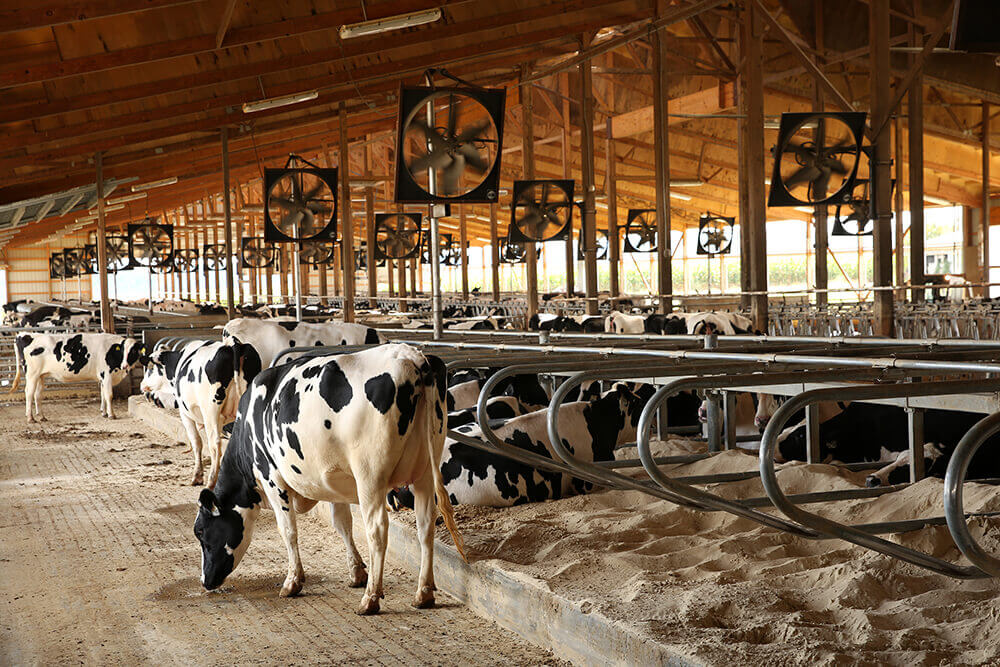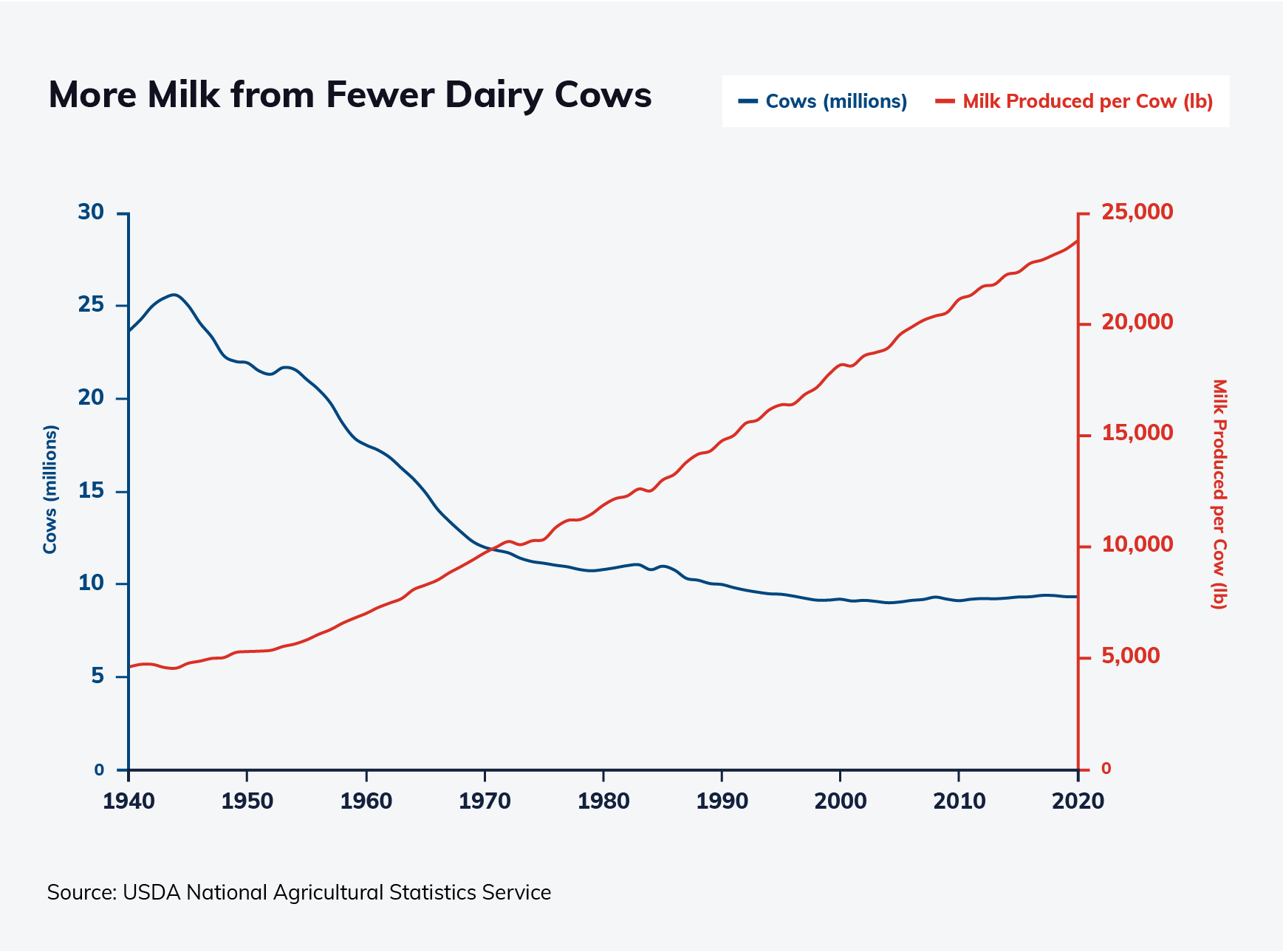
The U.S. provides an optimal environment for efficient milk production from healthy cows in well-managed herds.
Dairy producers use the latest research and innovation in cow health, nutrition and feed, facilities and genetics.
U.S. cows thrive in a variety of climates from cold to tropical and in diverse management and housing systems, including free-stall barns, open lots, traditional stall barns and pasture.
average milk production per cow, annually
dairy cows in U.S.
lactating cows per herd, on average
U.S. cows on official milk recording (DHI)
animal genotypes in national cooperator dairy database
dairy animals genotyped per year
of all A.I. inseminations are to young genomic sires
U.S. milk production per cow has tripled in the past 50 years through improved genetics and management. Genetics accounted for 55% of the improvement since the 1980s.

This U.S. dairy environment lends to development of world-leading genetics. U.S. genetics were first exported in the 1960s. Today, many herds in leading dairy nations can trace their lineage to U.S. genetics.
Dairy herds reflect a breeding selection focus on total merit: production, conformation, health, and longevity. Net Merit is the national genetic index, first established in 1994 and routinely updated to reflect the latest science, economics and management trends.
U.S. dairy is experienced and advanced when measuring and tracking large amounts of animal data. Not-for-profit organizations with a high level of farmer involvement are responsible for managing animal identification data, editing and aggregating data, and calculating U.S. genetic evaluations. Unique public-private collaboration with the United States Department of Agriculture has provided decades of farm-focused solutions and cutting-edge research by leading geneticists.